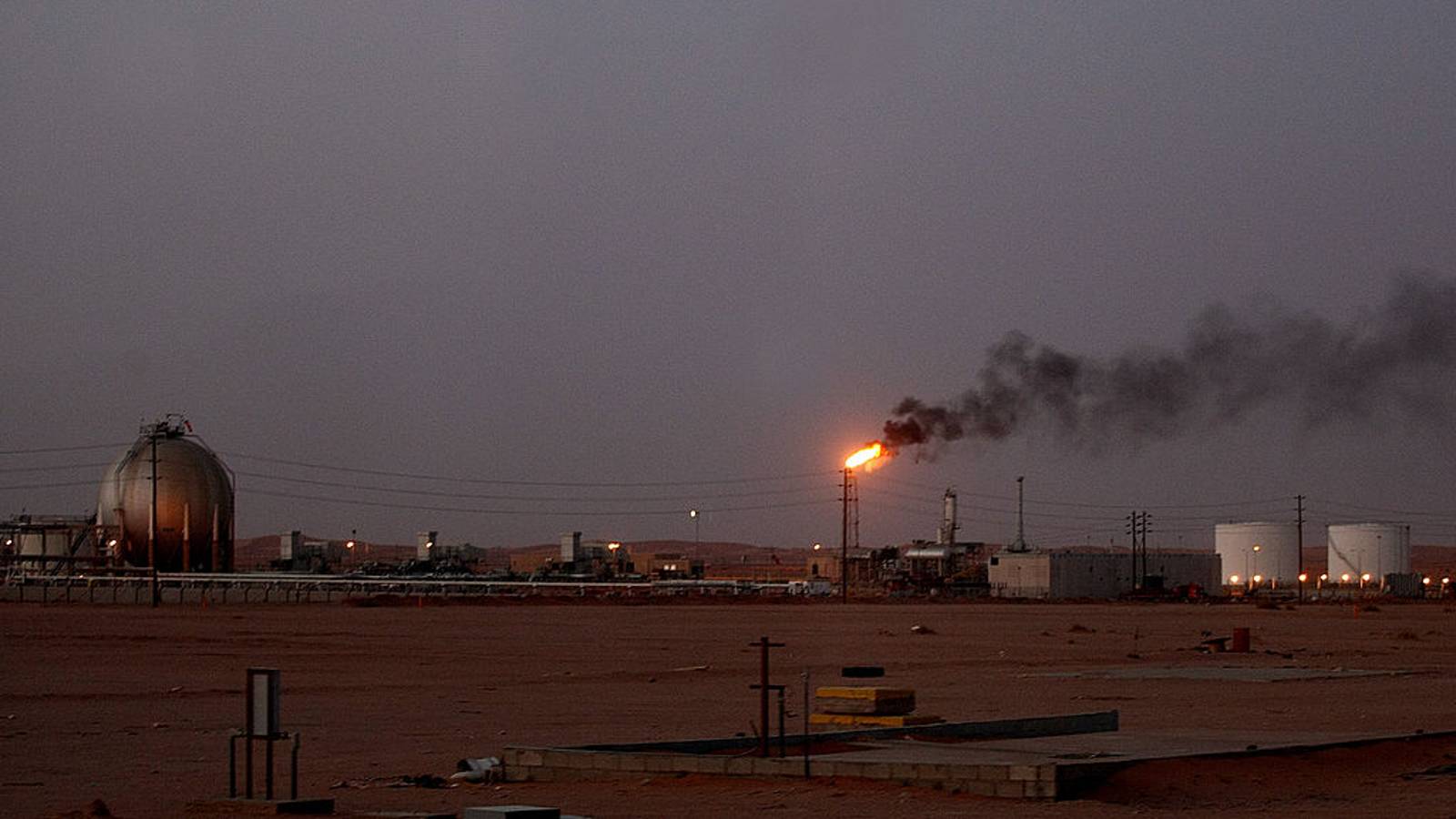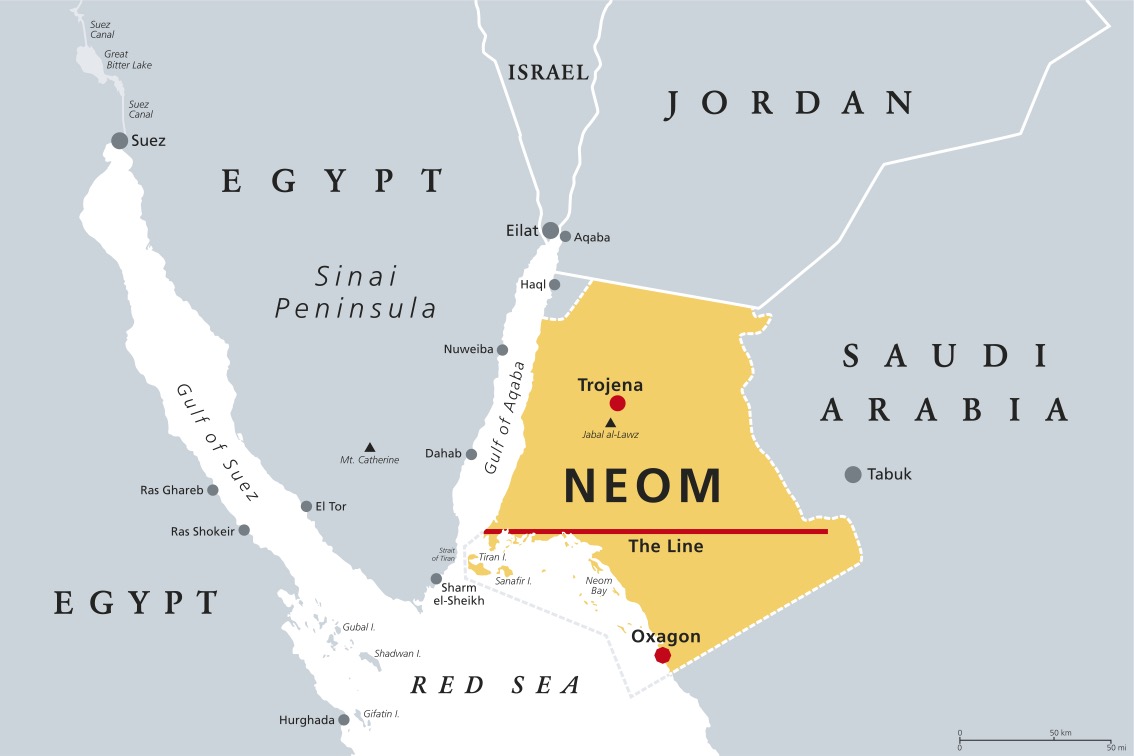Here’s a seldom commented-upon reality of this century and this moment: the United States remains the number-one arms-exporting nation on the planet. Between 2017 and 2021, it grabbed 39% of the total global weapons market and there’s nothing new about that. It has, in fact, been the top arms dealer in every year but one for the past three decades. And it’s a remarkably lucrative business, earning American weapons makers tens of billions of dollars annually.
It would be one thing if it were simply a matter of money raked in by the industrial half of the military-industrial complex. Unfortunately, in these years, U.S.-supplied weaponry has also fueled conflicts, enabled human-rights violations, helped destabilize not just individual countries but whole regions, and made it significantly easier for repressive regimes to commit war crimes.
At first glance, it appeared that Joe Biden, on entering the White House, might take a different approach to arms sales. On the campaign trail in 2020, he had, for instance, labeled Saudi Arabia a “pariah” state and implied that the unbridled flow of U.S. weaponry to that kingdom would be reduced, if not terminated. He also bluntly assured voters that this country wouldn’t “check its values at the door to sell arms.”
Initially, Biden paused arms deals to that country and even suspended one bomb sale. Unfortunately, within eight months of his taking office, sales to the Saudi regime had resumed. In addition, the Biden team has offered arms to a number of other repressive regimes from Egypt and Nigeria to the Philippines. Such sales contrast strikingly with the president’s mantra of supporting “democracies over autocracies,” as well as his reasonable impulse to supply weapons to Ukraine to defend itself against Russia’s brutal invasion.
The last president who attempted to bring runaway U.S. weapons trafficking under some sort of control was Jimmy Carter. In 1976, he campaigned for the presidency on a platform based, in part, on promoting human rights globally and curbing the arms trade. And for a period as president, he did indeed suspend sales to repressive regimes, while, in that Cold War era, engaging in direct talks with the Soviet Union on reducing global arms sales. He also spoke out eloquently about the need to rein in the trade in death and destruction.
However, Zbigniew Brzezinski, his hardline national security advisor, waged a campaign inside his administration against the president’s efforts, arguing that arms sales were too valuable as a tool of Cold War influence to be sacrificed at the altar of human rights. And once that longtime ally, the Shah of Iran, was overthrown in 1978 and the Soviet Union invaded Afghanistan in 1979, all talk of controlling the arms trade went out the window.
The Biden Record: Why Not Restraint?
What accounts for Joe Biden’s transformation from a president intent on controlling arms sales to a business-as-usual promoter of such weaponry globally? The root cause can be found in his administration’s adherence to a series of misguided notions about the value of arms sales. In a recent report I wrote for the Quincy Institute for Responsible Statecraft on the U.S. approach to such exports, I lay out those notions fully, including lending a hand in stabilizing key regions, deterring Washington’s adversaries from engaging in aggression, building meaningful military-to-military relationships with current or potential partner nations, increasing this country’s political and diplomatic influence globally, and creating jobs here in the United States. In the Saudi case, Biden’s shift was tied to the dangerous notion that we needed to bolster the Kingdom’s supposedly crucial role in “containing Iran” — a policy that only increases the risk of war in the region — and the false promise that, in return, the Saudis would expand their oil output to help curb soaring gas prices here at home.
Such explanations are part of an all-encompassing belief in Washington that giving away or selling weaponry of every sort to foreign clients is a risk-free way of garnering yet more economic, political, and strategic influence globally. The positive spin advocates of the arms trade give to the government’s role as the world’s largest arms broker ignores the fact that, in too many cases, the risks — from fueling conflict and increasing domestic repression elsewhere to drawing the United States into unnecessary wars — far outweigh any possible benefits.
An Arms Clients Hall of Shame
There are numerous examples, both historically and in the present moment, of how this country’s arms sales have done more harm than good, but for now let’s just highlight four of them — Saudi Arabia, Egypt, Nigeria, and the Philippines.
Saudi Arabia
Saudi Arabia has spearheaded a horrifying and disastrous seven-and-a-half-year-long intervention in Yemen that has killed thousands of people through indiscriminate air strikes on civilian targets ranging from hospitals, water treatment plants, and factories to marketplaces, weddings, and even a funeral. In all, that conflict has caused an estimated nearly 400,000 deaths, in large part due to a Saudi-run air-and-sea blockade that has impeded importing food, medical supplies, and fuel. The overwhelming presence of U.S.-supplied aircraft, bombs, missiles, and other weaponry in that military campaign has led many Yemenis to view it as an American war on their country, spurring resentment and potentially damaging future relations throughout the region.
Unlike in Ukraine, where the Biden administration has helped a country defend itself against a foreign invasion through the provision of arms and intelligence, in Yemen it could help stop the killing tomorrow simply by cutting off arms, spare parts, and help in the maintenance of weapons systems. Such pressure would push the Saudi regime to definitively end its destructive air strikes and its devastating blockade of that country, while potentially encouraging the launching of good-faith negotiations to end the war there.
Egypt
When it comes to Egypt, the Biden administration has offered more than $6 billion in weaponry so far, including missiles, helicopters, and transport planes. All of that is going to the regime of Abdel Fattah el-Sisi, who is widely regarded as the most repressive leader in that country’s history. The el-Sisi government has gunned down demonstrators in the street, locked up thousands of political prisoners, and run a scorched earth counterinsurgency campaign in the northern Sinai desert that has killed innocent civilians and driven thousands of people from their homes.
Nor are such systematic human rights abuses counterbalanced by “strategic” benefits of any obvious sort. Quite the opposite. The el-Sisi regime has taken numerous positions contrary to Washington’s interests. These have included supporting the Assad regime in Syria, aiding rebel forces fighting the internationally recognized government in Libya, backing antidemocratic military leaders in Sudan, and building military ties with Russia through arms sales, military exercises, and a security agreement. Congressional representative Tom Malinowski (D-NJ) hammered home this point several years ago, saying, “In exchange for the favors that Egypt gets from the White House, they don’t actually do anything for us. This is not a situation where we are trading off human rights for something that advances the U.S. national interest. Egypt… contributes nothing to the goals of peace and security… [U.S. arms transfers] do absolutely nothing to benefit Egyptian security or ours.”
Nigeria
Last April, the United States offered attack helicopters worth $997 million to Nigeria, marking the latest stage in the warming of relations between the two countries that began early in the Trump years.
The Nigerian military, however, has committed torture on a massive scale while targeting thousands of civilians in an ongoing campaign against the terrorist group Boko Haram and its local offshoots. As Human Rights Watch has reported, there is a “reasonable basis to believe” that Nigerian security forces have committed crimes against humanity. Amnesty International reported that 10,000 civilians died between 2011 and 2020 from extreme neglect in prisons run by Nigeria’s military. And far from reducing terrorism, such conduct has further destabilized significant parts of the country, stoking opposition to the government and making it easier for terrorist groups to recruit and operate. Earlier this month the security situation in Nigeria had deteriorated so badly that the Biden administration ordered the family members of U.S. diplomats to leave Abuja, the capital, due to a “heightened risk of terrorist attack.”
The Philippines
U.S. arms transfers to the Philippines are of particular concern. The United States supplied or offered billions of dollars’ worth of small arms, attack helicopters, and other weapons systems to the regime of former president Rodrigo Duterte, a government notorious for murdering and imprisoning thousands of civilians, as well as key human rights and democracy activists, under the guise of fighting a “war on drugs.” The sales were made as part of Washington’s anti-China containment strategy, even though the Philippines offers little value on that front.
It remains to be seen whether the new president, Ferdinand Marcos, Jr., an ally of Duterte who took office in May 2022, will pursue different policies. But as Center for International Policy analyst John Edward Mariano pointed out recently, Amnesty International and other impartial analysts “predict continued human rights abuses and democratic backsliding.” In response to the situation in the Philippines, congressional representative Susan Wild (D-PA) has introduced the “Philippine Human Rights Act,” which would cut off military aid to the regime until it has taken concrete steps to prevent future human-rights abuses.
Companies Cash In
While the humanitarian consequences of U.S. arms sales may be devastating, if you happen to be a major weapons maker like Lockheed Martin, Boeing, Raytheon, or General Dynamics, the economic benefits are enormous. Weapons systems built by those four companies alone have figured in more than half of the $100 billion-plus in major arms offers made since President Biden took office.
While those firms prefer to pose as passive beneficiaries of carefully considered government policies, they continue to work overtime to loosen restrictions on weapons exports and expand the number of countries eligible for such equipment and training. To that end, those four giant firms alone routinely donate millions of dollars to key members of Congress, while employing 300 lobbyists, many of them drawn from the ranks of the Pentagon, Congress, and the National Security Council. Once on board, those retired generals, admirals, and other officials use their government contacts and inside knowledge of the arm-sales process to influence government policies and practices.
A particularly egregious and visible example of this was Raytheon’s effort to pressure Congress and the Trump administration to approve a sale of precision-guided munitions to the Saudis. A former Raytheon lobbyist, Charles Faulkner, worked inside the State Department to keep the Saudi arms pipeline open despite that country’s bombing of civilian targets in Yemen, and then Raytheon’s former CEO, Thomas Kennedy, even went so far as to directly lobby Senate Foreign Relations chairman Senator Robert Menendez over Saudi arms sales. (He was rebuffed.) But the most spectacular lobbyist for the Saudis was, of course, President Trump, who justified continuing arms sales to Riyadh after the regime’s 2018 murder of U.S. resident, Saudi journalist, and Washington Post columnist Jamal Khashoggi this way:
“$110 billion will be spent on the purchase of military equipment from Boeing, Lockheed Martin, Raytheon, and many other great U.S. defense contractors. If we foolishly cancel these contracts, Russia and China would be the enormous beneficiaries — and very happy to acquire all this newfound business. It would be a wonderful gift to them directly from the United States!”
In fact, neither Russia nor China would be able to replace the U.S. as Saudi Arabia’s primary arms supplier any time soon. The Kingdom is so reliant on American equipment that it might take a decade or more for it to rebuild its military around weapons supplied by another nation.
In reality, expansive as American arms sales to the Saudis are, that $110 billion figure was a typical case of Trumpian exaggeration. Actual sales during his term were less than one-third of that, and jobs tied to those sales in the U.S. were similarly far less than President Trump claimed. The figure he liked to throw around — 500,000 — was at least 12 times the actual one. Still, the damage done by the weaponry his administration rammed through Congress for the Saudis has been incalculable and can’t be measured by the dollar value of any particular sale.
The Raytheon lobbying campaign was extraordinary primarily because its details became public knowledge. But count on one thing: similar efforts by other military-industrial corporations surely take place behind closed doors on a regular basis. One precondition for reducing dangerous arms deals would have to be reducing the political power of the major weapons-producing companies.
Pushing Back Against U.S. Arms Sales
In 2019, spurred by Saudi actions ranging from the war in Yemen to the Khashoggi murder, both houses of Congress voted down a specific deal for the first time — $1.5 billion in precision-guided bombs for Saudi Arabia and other Middle Eastern clients — only to have their actions vetoed by President Trump. Successful votes to end military support for Saudi Arabia under the War Powers Resolution met a similar fate.
The recent Saudi decision to side with Russia on reducing global oil output has reinvigorated such Congressional efforts. A new Yemen War Powers Resolution co-sponsored by Representatives Pramila Jayapal (D-WA) and Peter DeFazio (D-OR) has more than 100 backers in the House, while a parallel measure co-sponsored by Senators Bernie Sanders (I-VT), Elizabeth Warren (D-MA), and Patrick Leahy (D-VT) has been proposed in the Senate. Meanwhile, Senate Foreign Relations Committee chair Robert Menendez (D-NJ) has called for a hold on most arms transfers to the Saudi regime, while Senator Richard Blumenthal (D-CT) and Representative Ro Khanna (D-CA) are seeking a one-year suspension of Saudi sales as leverage to force that country to reverse its decision to warm relations with Russia and end its intervention in Yemen. Such efforts will face a far tougher road in a Republican-controlled Congress, so time is of the essence.
Success in reining in Washington’s arms sales will, at the very least, require a major campaign of public education. Too few Americans even know about their nation’s role as the world’s largest weapons trader, much less the devastating impact of the arms it transfers. But when asked, a majority of Americans are against arming repressive regimes like Saudi Arabia and consider arms sales to be “a hazard to U.S. security.”
Still, until there is greater public understanding of the humanitarian and security consequences of what the government is doing in our name, coupled with concerted pressure on the Biden administration, the national security state, and the weapons makers, the arms trade is likely to continue full speed ahead. If so, those companies will remain in weapons heaven, while so many people on this planet will find themselves in a hell on earth.
This post was originally published on Latest – Truthout.



